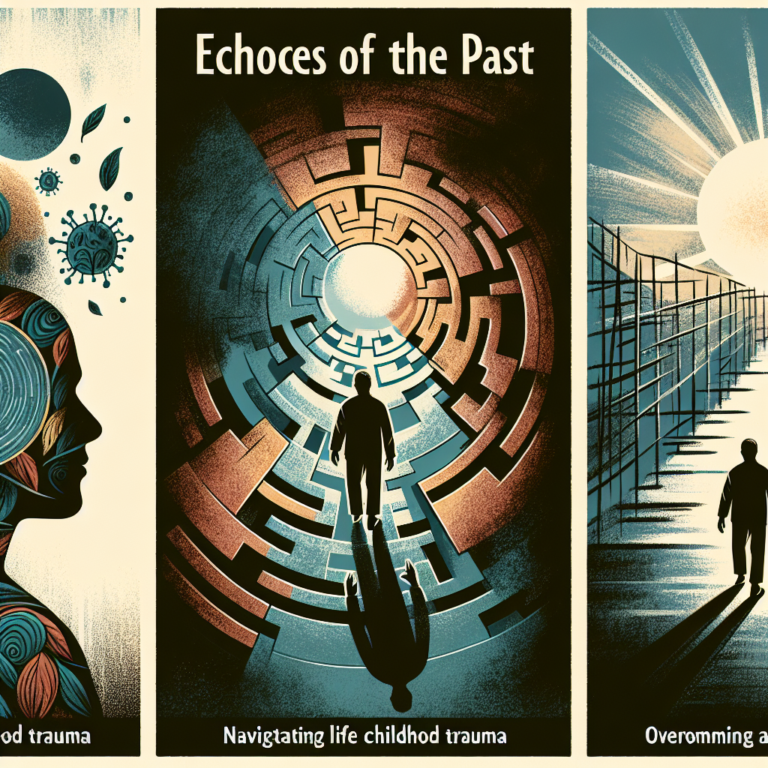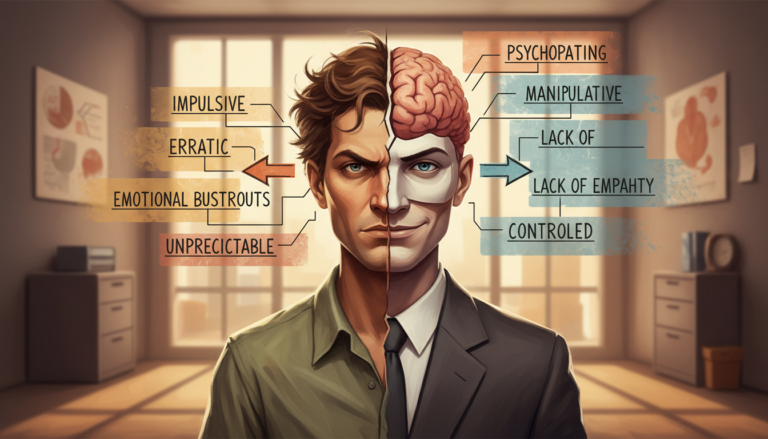
Trauma Transcended: Navigating the Adult Mind After a Troubled Childhood
Introduction: The Journey of Healing
Imagine waking up every day with the weight of your past pulling at your spirit, the shadows of childhood trauma lurking just beneath your consciousness. For many adults, the ghosts of a troubled childhood manifest in various forms — anxiety, depression, strained relationships, and a pervasive sense of unworthiness. Yet, while the scars of early experiences can feel insurmountable, hope abounds in the potential for healing and transcendence. This is the journey of "Trauma Transcended: Navigating the Adult Mind After a Troubled Childhood." In this article, we will explore how individuals can transform their past pain into a source of strength, ultimately finding peace and purpose.
Understanding Trauma: A Deep Dive
Trauma is not merely an event but a lingering emotional and psychological response to distressing experiences. Childhood trauma can range from neglect and abuse to the loss of a parent or exposure to violence. Understanding the intricacies of trauma is crucial to navigating the adult mind after a troubled childhood.
The Science of Trauma
Trauma activates the brain’s stress response system, leading to heightened arousal and a cycle of fear and anxiety that can ensue long into adulthood. Here, we’ll examine the psychological and physiological impacts of childhood trauma through a chart.
| Impact | Description |
|---|---|
| Neurobiological | Altered brain structure, affecting memory and emotional regulation |
| Emotional | Increased likelihood of anxiety, depression, and PTSD |
| Behavioral | Engagement in self-destructive behaviors (e.g., substance abuse) |
Understanding this connection is the first step toward healing and transcendence.
The Framework of Healing: Essential Steps to Transcend Trauma
The journey through trauma is deeply personal and varies widely among individuals. However, several key components form a robust framework for healing. Here, we explore these steps in detail.
1. Acknowledgment: The First Step Toward Freedom
The road to recovery begins with acknowledging trauma’s impact on one’s life. Many adults may have buried their experiences deep within, regarding them as weaknesses or sources of shame. Being truthful and confronting these feelings is essential.
Case Study: Sarah’s Story
Sarah, a 32-year-old graphic designer, struggled with anxiety and feelings of unworthiness stemming from her authoritarian upbringing. The moment she began writing about her experiences in a journal, her awakening began. Acknowledgment allowed Sarah to process her thoughts and emotions, leading her to seek therapy.
2. Seeking Professional Help: The Power of Therapy
Professional intervention is often necessary to navigate complex trauma-related challenges. Various therapeutic approaches, such as Cognitive Behavioral Therapy (CBT) and Eye Movement Desensitization and Reprocessing (EMDR), can provide structured support.
Case Study: Tom’s Journey
Tom, a 45-year-old man, turned to therapy after years of struggling with depression stemming from childhood neglect. With the guidance of a trained therapist, he learned strategies to reframe negative thought patterns, which empowered him to foster healthier relationships.
3. Mindfulness and Self-Compassion: Embracing the Present
Mindfulness practices, such as meditation and deep breathing, help individuals ground themselves in the present moment. Coupled with self-compassion, these practices enable healing by fostering a loving relationship with oneself.
4. Building a Support Network: The Importance of Connection
Connecting with others who understand your journey can create a profound sense of belonging. Support groups, online forums, or close relationships can cultivate a nurturing environment that reinforces healing.
5. Developing Coping Strategies: Tools for Everyday Life
Learning healthy coping mechanisms is vital for navigating triggers and stressors associated with past trauma. This could include journaling, exercise, or engaging in creative outlets like art or music.
6. Setting Goals and Creating a Vision: Aspiration Beyond Trauma
Transcending trauma necessitates a forward-looking perspective. Setting personal and professional goals can help individuals reclaim their narrative and visualize a future unbound by their past.
Inspirational Insight
It is important to remember: Healing is not linear. Individuals might have setbacks; however, each step taken reinforces resilience and hope.
Overcoming Barriers to Healing
Despite the steps necessary for healing, obstacles often impede progress. These barriers may include stigma, societal expectations, or the internalized belief that one must always be ‘strong.’
Navigating Stigma: Breaking Down Barriers
Dispelling myths surrounding mental health can empower individuals to seek help and embrace their journeys. Advocating for oneself and others spread awareness and creates an inviting space for healing.
Table: Common Myths vs. Reality
| Myth | Reality |
|---|---|
| Mental health issues are a sign of weakness | Anyone can experience mental health issues, regardless of strength |
| Therapy is only for the severely troubled | Everyone can benefit from therapy for various issues |
| Past trauma can be completely forgotten | Healing is about learning to live with trauma, not erasing it |
Moving Beyond Trauma: A Practical Approach
As we navigate the complexities of healing, the focus shifts to applying these insights in everyday life. Here are practical strategies to transcend trauma daily.
Daily Practices for Navigating the Adult Mind After a Troubled Childhood
Cultivate Gratitude: Regularly reflect on what you are thankful for. This rewires the brain to focus on positivity.
Engage in Physical Activity: Exercise releases endorphins, helping manage stress levels and boost mood.
Create a Routine: Structure can provide comfort and stability, especially for those who experienced instability in childhood.
Seek Continuous Learning: Engaging in new hobbies or educational pursuits can enhance confidence and personal growth.
- Reflect with Purpose: Journaling prompts that focus on self-exploration and clarity can help process emotions and experiences.
Conclusion: Embracing Transformation
The journey of "Trauma Transcended: Navigating the Adult Mind After a Troubled Childhood" is one of resilience and empowerment. While childhood trauma can leave indelible scars, it does not define who we are. The power to heal lies not in forgetting the past but in transforming it into a stepping stone towards a fulfilling life.
As we take actionable steps to address our trauma, seek support, and embrace the present, we shape our future with purpose and hope. Remember, it is never too late to reclaim your narrative, rise from your struggles, and transform your pain into strength.
FAQs About Trauma Transcended: Navigating the Adult Mind After a Troubled Childhood
What are the signs of unresolved childhood trauma in adults?
- Common signs include anxiety, depression, difficulty in relationships, self-destructive behaviors, and chronic feelings of unworthiness.
How long does the healing process take?
- Healing duration varies for each individual, often taking months or years depending on the person’s circumstances and engagement with healing practices.
Can childhood trauma affect physical health?
- Yes, unresolved trauma can lead to chronic illnesses, weakened immune systems, and other health-related issues due to stress and emotional turmoil.
Is therapy effective for managing trauma?
- Yes, therapy can be very effective in helping individuals process their trauma, develop coping strategies, and foster healthier relationships.
- What is self-compassion, and why is it crucial for healing?
- Self-compassion involves treating oneself with kindness during times of struggle. It is crucial for healing, as it fosters a supportive inner dialogue that promotes growth and resilience.
By exploring these facets of trauma and creating a personal toolkit for healing, individuals can navigate their journeys toward transcendence, ultimately emerging as stronger versions of themselves. Trauma can indeed be transcended; the adult mind can flourish in the wake of a troubled childhood.

















